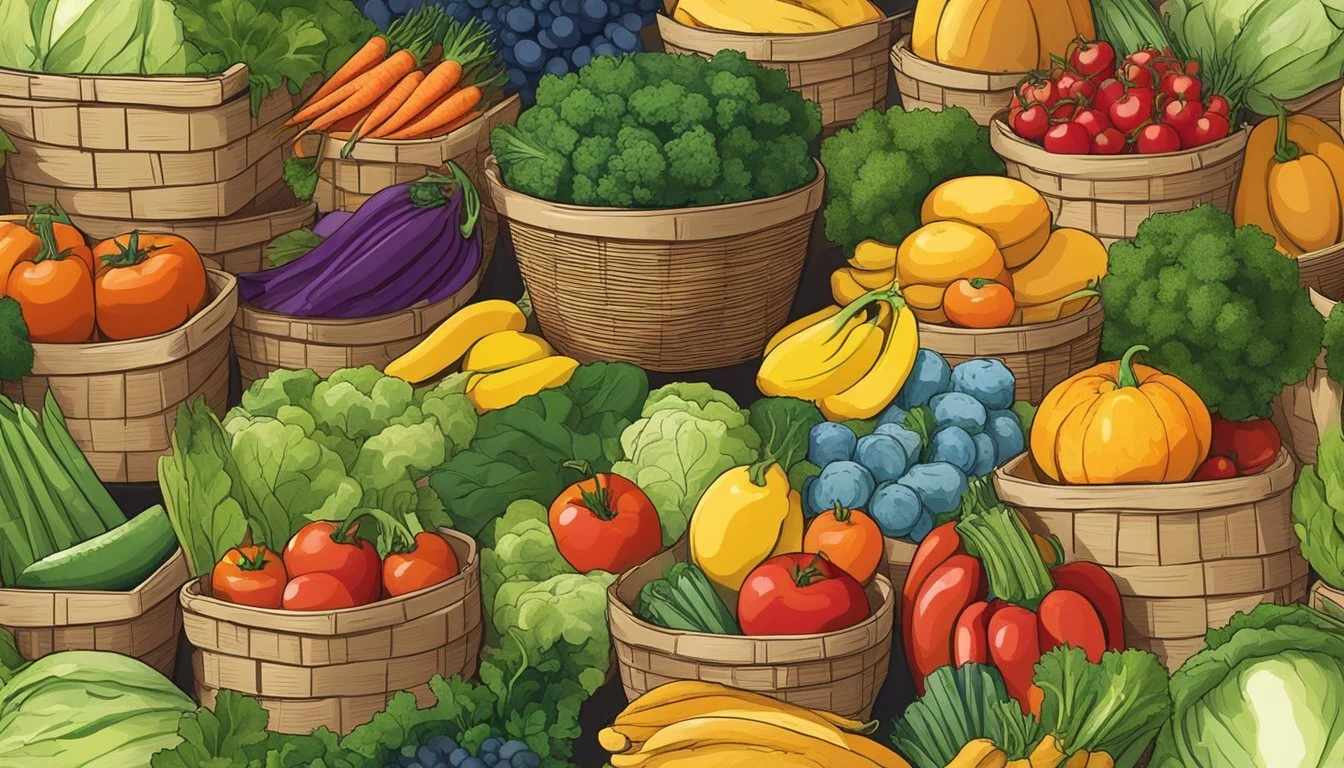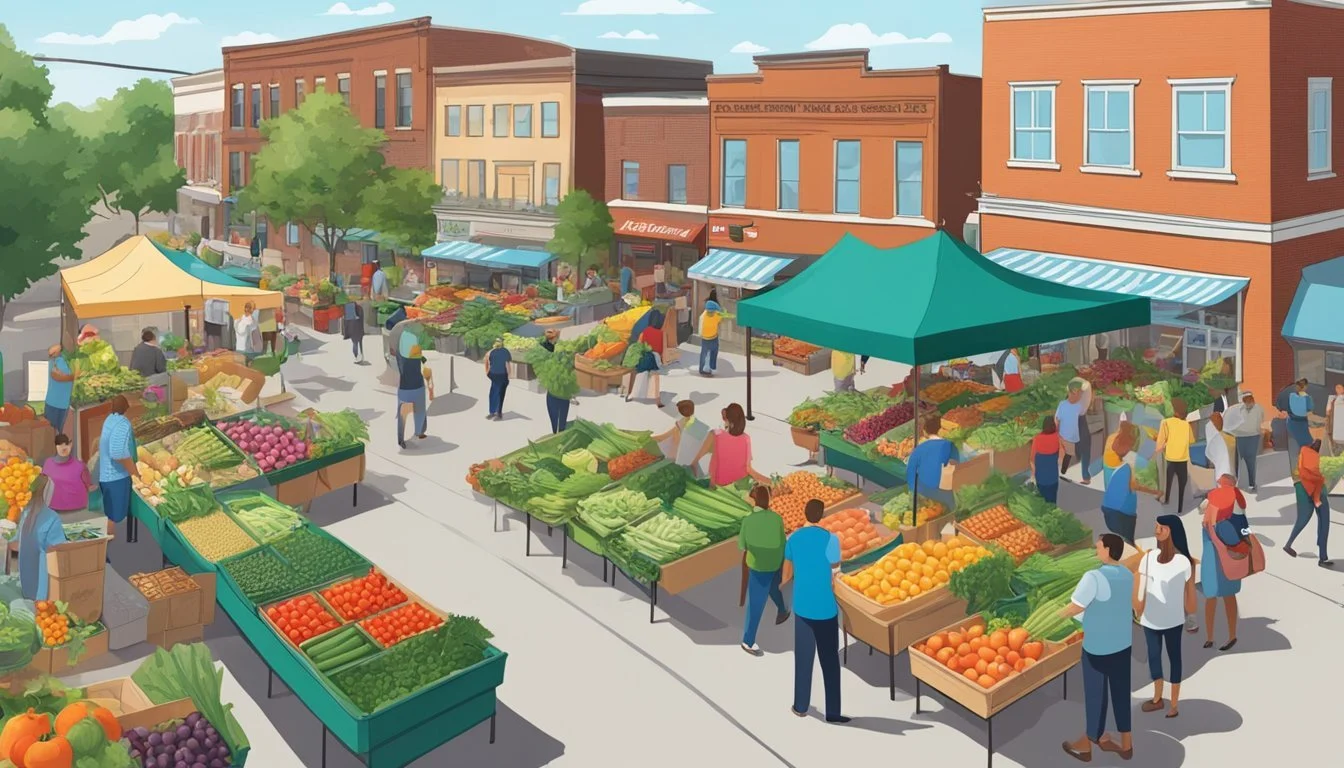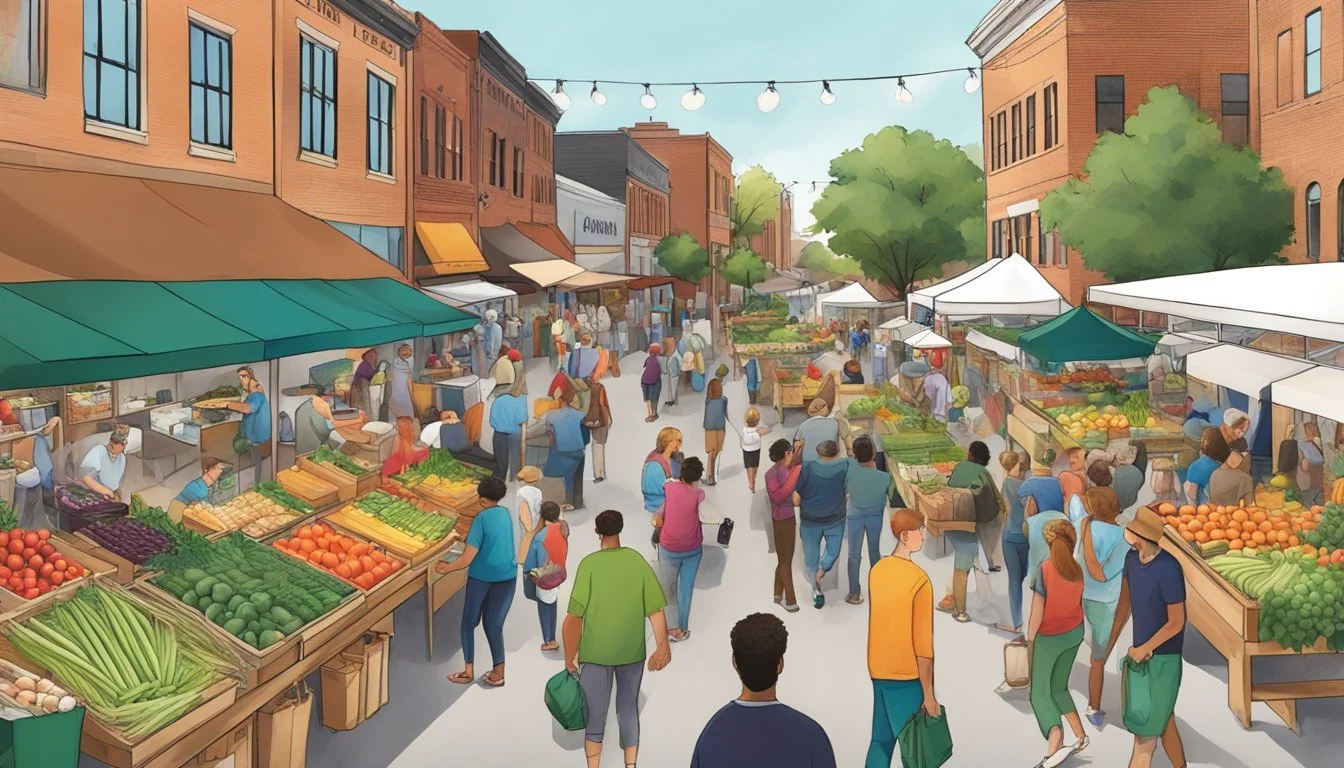Community Supported Agriculture (CSA) in Lincoln, NE
A Guide to Local Food Partnerships
Community Supported Agriculture, or CSA, offers a way for consumers in Lincoln, Nebraska to buy local, seasonal food directly from a farmer. CSA programs in Lincoln allow members to purchase a share of a farm's produce, typically consisting of a box of vegetables, but sometimes including fruits and meats, delivered weekly throughout the farming season. This model provides stable income for farmers, who can plan their crop production knowing that they have a dedicated customer base.
Customers in Lincoln benefit from CSAs not only by receiving fresh, high-quality produce but also by engaging directly with the source of their food. This relationship fosters a better understanding of the seasonal rhythms of farming and the challenges involved. For farmers in the Lincoln area, it means a commitment to supplying their neighbors with the best possible products, while also gaining essential support for the farm's operations.
In the Lincoln community, numerous CSA options are available, each offering various types of shares and pickup points to accommodate the needs of community members. By choosing a CSA, residents in Lincoln are directly contributing to the sustainability of local farms and the health of their families, while also enjoying the flavors and nutritional benefits of freshly harvested food.
Understanding CSA
Community Supported Agriculture in Lincoln, NE, connects consumers directly with local farmers, providing a steady flow of fresh, quality produce through a membership-based model.
CSA Model Basics
The core of a CSA entails consumers buying membership or subscription shares to receive a portion of the farmer's produce throughout the growing season. Customers generally receive weekly or bi-weekly deliveries or pick-ups of vegetables, fruit, eggs, meat, and sometimes cheese, which are freshly harvested and locally grown.
Benefits to Consumers
Consumers benefit from subscribing to a CSA because they gain access to fresh, high-quality local foods. They can also learn more about how their food is grown and develop a closer connection to the source of their nutrition.
Benefits to Farmers
For farmers, the CSA model provides a reliable revenue stream up-front, which can help with the operational costs of running a farm. It establishes a committed customer base and can buffer the risks associated with crop failures or market fluctuations.
Range of Products Offered
The product range in CSAs can vary but typically includes:
Vegetables: A variety of seasonal offerings.
Fruit: Often included when in season.
Eggs and Meat: Some CSAs offer pasture-raised eggs and meats.
Cheese: Occasionally offered from local dairy farms.
This variety ensures that members have access to a balanced assortment of foodstuffs.
Local and National CSA Trends
CSAs in Lincoln are part of a broader national trend that supports sustainable farming and community health. Nationally, more consumers are showing interest in local, sustainable food sources and wish to invest in local agriculture. Locally, farms may tailor their CSA offerings to meet the unique needs of the Lincoln community, such as providing options for low-income families.
CSA Programs in Lincoln, NE
Community Supported Agriculture (CSA) programs in Lincoln, Nebraska offer residents the opportunity to engage with local food systems by subscribing to regular deliveries of farm produce. These programs support the local economy, provide fresh products, and foster a connection between consumers and their food sources.
Community Crops
Community Crops equips beginning farmers with the necessary resources to cultivate and market agricultural products. It operates primarily through Prairie Pines Community Farm, offering CSAs that contribute to sustainability in Lincoln's food network.
Robinette Farms
At Robinette Farms, subscribers receive a diverse range of fresh produce, truly embodying the farm-to-table concept. This family-run farm prioritizes ecological farming practices and strives to maintain a mutually beneficial relationship between the land and the local community.
Prairie Pines Community Farm
Linked to Community Crops is Prairie Pines Community Farm. This site hosts multiple farming operations and serves as a training ground for aspiring agrarians. They offer CSA shares that include a variety of seasonal produce, reflecting Lincoln's rich agricultural landscape.
Local Food Directories
For those looking to explore various CSA options, Local Food Directories provide comprehensive listings of CSA programs in and around Lincoln, NE. These directories are vital tools for finding the right CSA to suit individual preferences, ensuring support for local farmers and fresh, quality produce for consumers.
Joining a CSA
When an individual decides to become a member of a CSA in Lincoln, NE, they embark on a journey that connects them with local farmers, ensures a supply of fresh produce, and supports sustainable agriculture.
How to Become a Member
To join a Community Supported Agriculture program in Lincoln, NE, an individual first identifies a local CSA farm. They can then reach out to the farm directly or sign up through the farm's website. Each farm typically requires new members to fill out a membership form with their contact information and preferred share options.
Understanding CSA Shares
CSA shares represent a portion of the farm’s produce allotted to members throughout the farming season. These shares often include a variety of vegetables and fruits, and some CSA programs also offer meat products. Members should stay updated with the farm's seasonal offerings, as the contents of the shares may vary based on the harvest.
Fee Structures and Payment Plans
In Lincoln, CSA memberships usually involve a fee that covers a season of produce. The fee structure can vary, but it is often determined by the type and size of the share. Payment plans may be available, including options for low-income communities that qualify for SNAP. In such cases, members might have the option to pay weekly to align with public food assistance programs. Members should review and understand the terms before committing to a CSA.
Payment Options:
Full payment upfront
Installment plans
SNAP-eligible weekly payments
Note: Some CSA programs in Lincoln reserve a portion of their shares specifically for SNAP-qualifying customers to ensure accessibility.
Support and Resources for Farmers
In Lincoln, Nebraska, farmers exploring the model of Community Supported Agriculture (CSA) have access to a robust network of resources. These include training programs for beginners, non-profit organizations focused on sustainable agriculture, and educational material tailored to the needs of a starting farm.
Starting a CSA Farm
For those interested in initiating a CSA farm, it's crucial to understand the model's commitments and logistics. Community CROPS stands out as a nonprofit organization that not only facilitates CSA programs but also provides a training farm—Prairie Pines Community Farm. It offers a space for beginning farmers to learn the ropes of sustainable agriculture.
Organizations for Farmer Support
Farmers receive substantial backing from local organizations dedicated to agricultural success. LocalHarvest is a platform that connects CSA farms like Community CROPS with consumers, bolstering visibility and sales. The network ensures that funds generated are funneled back into supporting farmers, particularly those new to the field.
Educational Resources for Beginning Farmers
Knowledge is a powerful asset for beginning farmers. Lincoln is home to resources such as the Buy Fresh Buy Local® Nebraska initiative, which apart from featuring a network of CSAs, also imparts insights on the health benefits and seasonal aspects of CSA farming. Workshops, seminars, and direct mentorship through these organizations provide a well-rounded educational foundation.
Marketing and Expansion
Community Supported Agriculture (CSA) initiatives in Lincoln, NE, effectively harness marketing techniques and strategies to widen their consumer base. Capitalizing on the symbiotic relationship between CSAs and local farmers markets, innovative marketing strategies, and efforts to broaden awareness play a vital role in the industry's growth.
Role of Local Farmers Markets
Local farmers markets in Lincoln offer a dynamic platform for CSAs to promote their shares. The presence of CSA booths at these markets, managed by diligent market managers, provides visibility and direct interaction with potential customers—families and individuals interested in supporting local agriculture. Farmers markets serve not just as points of sale but as social hubs where CSAs can forge strong community ties and raise their profile amongst health-conscious consumers.
Marketing Strategies for CSA
CSAs in Lincoln, NE, employ strategic marketing practices tailored to their target audience. They use:
Social Media Campaigns: Regular posts and updates featuring fresh produce and happy customers.
Engaging Community Events: Hosting farm tours and participating in local food festivals to nurture customer relationships.
Email Newsletters: Keeping members informed about seasonal offerings and CSA updates.
Referral Programs: Encouraging existing members to introduce new families to the CSA.
These strategies help maintain a loyal customer base while attracting new members.
Expanding CSA Reach and Awareness
Expanding the reach of CSAs involves strategic partnership and awareness campaigns. They partner with local businesses and organizations to offer workplace CSA deliveries, making it convenient for working families. Education plays a pivotal role in expansion, so CSAs often collaborate with schools and community groups to inform about the benefits of supporting local agriculture. Additionally, they utilize customer testimonials and success stories on various platforms to illustrate the value and impact of investing in CSA shares.
Challenges and Considerations
Community Supported Agriculture (CSA) in Lincoln, NE, presents a network of benefits and challenges. Understanding these aspects helps ensure informed participation and sustainable operations.
Challenges in the CSA Model
Financial Sustainability: The CSA model in Lincoln is challenged by the need to balance financial stability with affordable pricing. Farmers must navigate fluctuating costs and market prices to remain viable, while ensuring shares remain accessible to consumers.
Logistics and Distribution: Efficient distribution of farm products to members is critical. Small-scale operations may struggle with logistics, leading to increased costs and potential impacts on product freshness.
Seasonal and Climatic Considerations
Growing Season: Lincoln’s CSA offerings are impacted by the local climate, with a limited growing season dictating availability. This seasonality affects the variety and quantity of agriculture products accessible throughout the year.
Weather Events: Extreme weather, such as droughts or storms, can severely disrupt agricultural production, posing a risk to both yield and quality of farm products.
Consumer Expectations and Education
Aligning Expectations: Consumers may have expectations for product variety and consistency that may not align with the realities of local food production, especially given the local climate's impact on farming.
Education Efforts: There's a need for ongoing education about the CSA model and the nature of local agriculture. This includes understanding the benefits and limitations of seasonal eating and supporting local farms.







